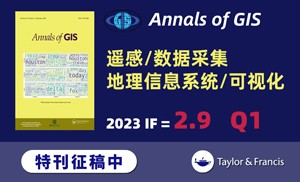当前位置:
X-MOL 学术
›
International Studies Quarterly
›
论文详情
Our official English website, www.x-mol.net, welcomes your
feedback! (Note: you will need to create a separate account there.)
Public Opinion and Crisis Behavior in a Nuclearized South Asia
International Studies Quarterly ( IF 2.4 ) Pub Date : 2021-06-03 , DOI: 10.1093/isq/sqab042 Christopher Clary 1 , Sameer Lalwani 2 , Niloufer Siddiqui 1
International Studies Quarterly ( IF 2.4 ) Pub Date : 2021-06-03 , DOI: 10.1093/isq/sqab042 Christopher Clary 1 , Sameer Lalwani 2 , Niloufer Siddiqui 1
Affiliation
Research on public opinion and crisis behavior has focused largely on pressures felt by leaders who have initiated a crisis, not on leaders in target states responding to adversary provocation. Our survey experiment involving 1,823 respondents in Punjab, Pakistan, finds public support for escalating rather than de-escalating in response to such provocation. It shows how public pressures can encourage conflict even in instances where a leader has engaged in no prior effort to generate audience costs following crisis onset. Survey respondents were more likely to support escalatory decisions if they were made by a military, rather than civilian, leader, although we do not find that military leaders receive more support in de-escalatory decisions. Finally, while we demonstrate that leaders can mitigate the costs of de-escalating by highlighting the dangers of conflict, they still incur opportunity costs in foregone public support when they opt to de-escalate rather than escalate a crisis.
中文翻译:

核化南亚的公众舆论和危机行为
对公众舆论和危机行为的研究主要集中在引发危机的领导人所感受到的压力上,而不是目标国家领导人对对手挑衅的反应。我们在巴基斯坦旁遮普邦涉及 1,823 名受访者的调查实验发现,公众支持升级而不是降级以应对此类挑衅。它显示了公共压力如何鼓励冲突,即使在领导者在危机爆发后没有事先努力产生受众成本的情况下也是如此。如果升级决定是由军方而非文职领导人做出的,则调查受访者更有可能支持升级决定,尽管我们没有发现军方领导人在降级决定中获得更多支持。最后,
更新日期:2021-06-03
中文翻译:

核化南亚的公众舆论和危机行为
对公众舆论和危机行为的研究主要集中在引发危机的领导人所感受到的压力上,而不是目标国家领导人对对手挑衅的反应。我们在巴基斯坦旁遮普邦涉及 1,823 名受访者的调查实验发现,公众支持升级而不是降级以应对此类挑衅。它显示了公共压力如何鼓励冲突,即使在领导者在危机爆发后没有事先努力产生受众成本的情况下也是如此。如果升级决定是由军方而非文职领导人做出的,则调查受访者更有可能支持升级决定,尽管我们没有发现军方领导人在降级决定中获得更多支持。最后,









































 京公网安备 11010802027423号
京公网安备 11010802027423号